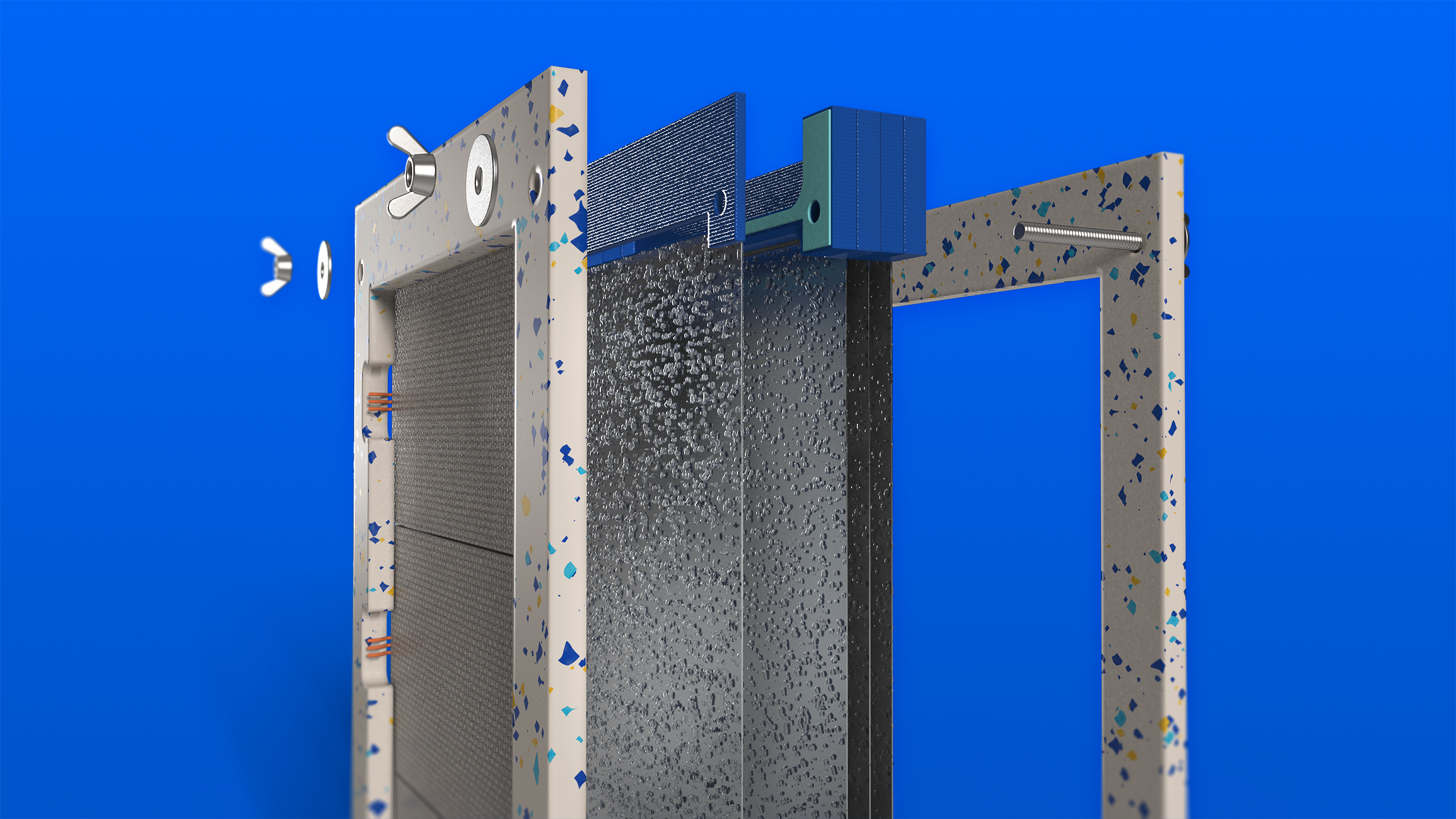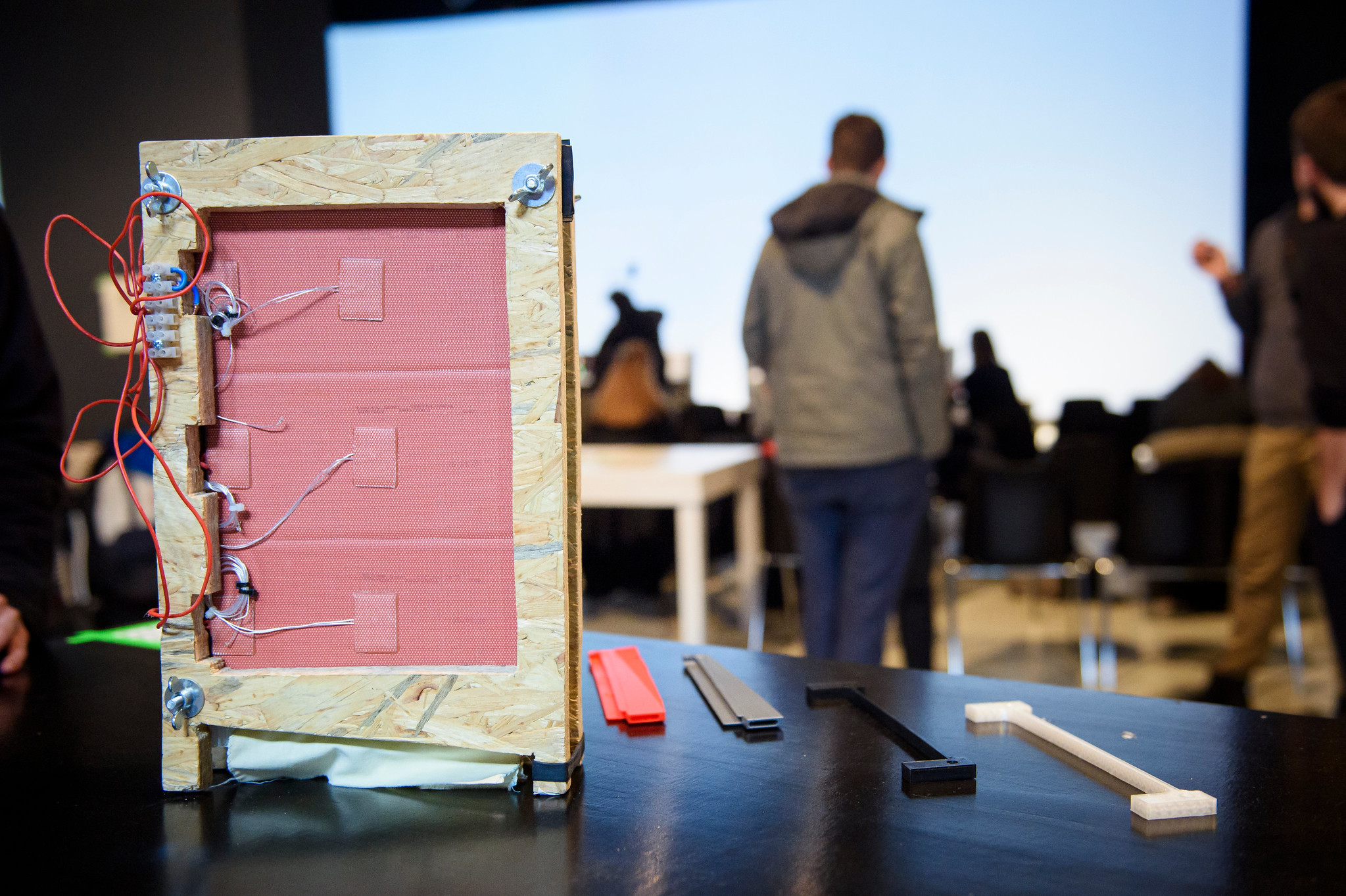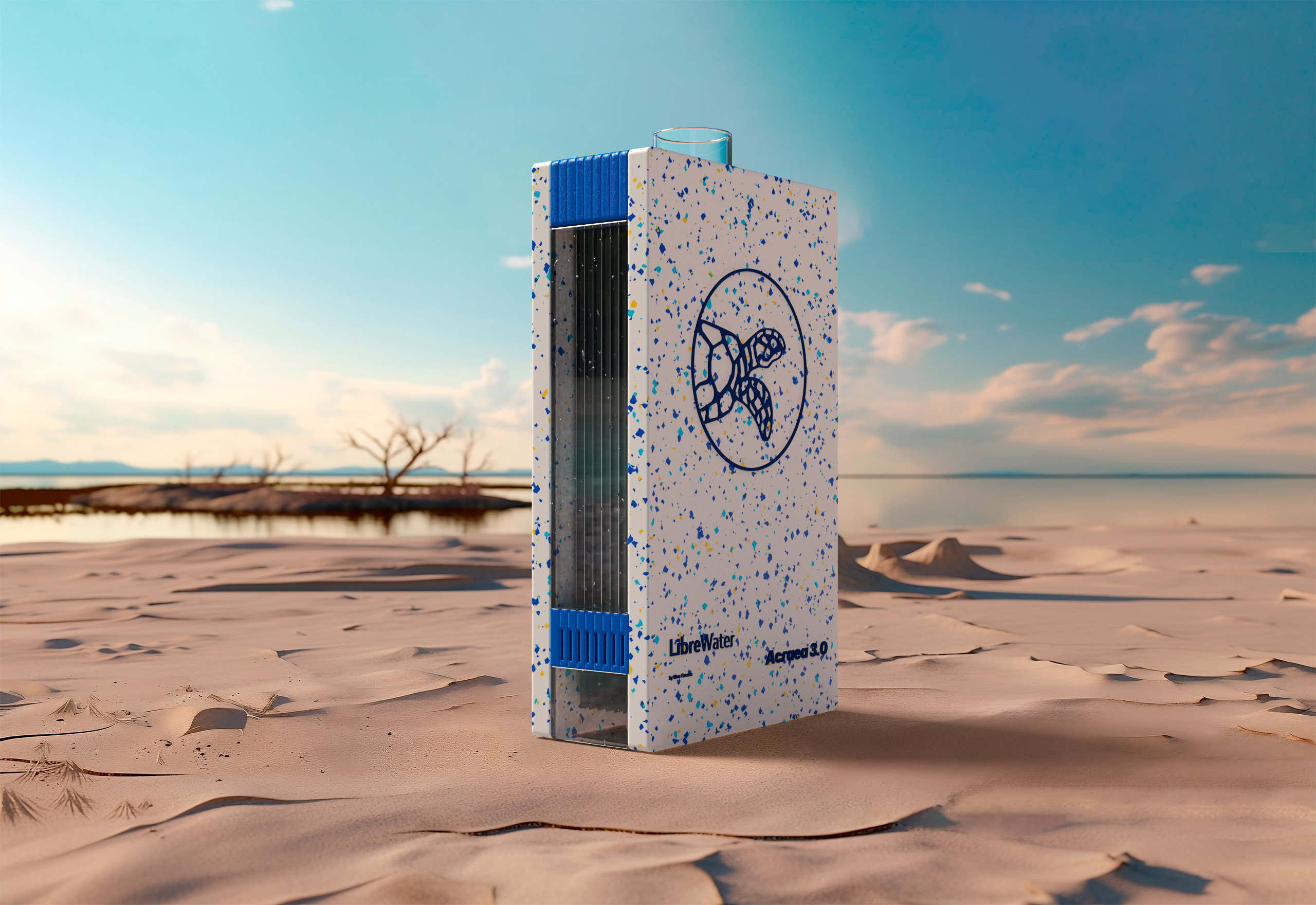LibreWater | Tom Dietel

Useful information
- Team members
- Country
- —
- Keywords
- -
Detailed Description
Water stress is a global challenge. We believe it can only be embraced by collective intelligence and locally produced, customizable solutions. We are developing an Open Source Hardware device for solar powered desalination to empower people to have access to drinking water - a human right.
Project Details
- Does your design take social and cultural challenges and human wellbeing into consideration?
The Acraea prototype series is designed to be easily manufactured using basic makerspace tools, skills and materials, so that many people can get involved. The science behind the core technology is simple and accessible in itself, as it is essentially the process of rain in a box - solar energy turning seawater into drinking water.
Based on this accessibility, from the scientific foundation to the product design approach, openness can be transformed into co-creation of solutions.
The culture of co-creation and collaboration is as important to us as the development of the prototype. We constantly engage contributors by hosting open hackathons and inviting people to participate. From spontaneous assembly tests in makerspaces in Hamburg to hackathons and field trips in Athens, we have taken design feedback from multiple communities. We reached out to experts in their fields from around the world, whether it was water technology, 3D printing or design. This is the magic of Open Source: We are in this together, the solutions belong to all of us. People are happy to share and support the mission.
The technology we are building on has been researched and proven for over six decades. With the previous constraints of more isolated local efforts, research could not be as collaborative. With open, accessible and locally manufacturable designs, we are also inviting existing and newly inspired scientists into a shared collaborative space - in direct connection with users and designers.
This is a new and exciting paradigm for innovation: Global collaboration from lab to field - in real time, beyond linearity and focused on the best possible solutions.
- Does your design support sustainable production, embodying circular or regenerative design practices?
The technological solution we are working on can regenerate almost any water, even seawater, into fresh water, just as nature does with the natural water cycle.
We are aware of the materials we use and how their life cycle affects our planet. The design is modular so parts can be easily repaired, replaced and upgraded. The machine can be disassembled and reassembled in a matter of minutes with almost no tools, allowing quick maintenance by the user. Circular design is at the heart of our approach and was recently recognised by the Make It Circular Challenge of WDCD.
At the level of organizational philosophy, LibreWater is owned by turtles, we work for SeaEOs and Chief Flow Officers. Turtles are not only peaceful and adorable, but have been independently trusted by many cultures to be the guardians of our planet - we assume they care deeply about regenerative solutions and are experts in collaborative flow.
In this spirit we embrace positivity for creation, move with nature, do not take ourselves too seriously and envision solutions beyond the human sphere. We keep asking: How can we flow and grow better together, bringing forward solutions to the most urgent needs of this planet?
- Does your design use principles of distribution and open source?
LibreWater is rooted in openness. It is only through openness that we were inspired to get started and supported by kind-hearted contributors to keep going. We openly prototyped a concept to reduce plastic waste - and organically arrived at Distributed Design, Design Global - Manufacture Local practices and Open Source Hardware. Our current state of development, with design files and assembly instructions, is released to the public at https://codeberg.org/LibreWater.
Most water treatment technologies cannot be openly co-designed because they rely on specialised filters and know-how. The technology we are embracing (solar thermal Vertical Multiple-Effect Distillation) is a simple, proven and robust technology that has great potential to unfold through openness - hydrating people in need through locally manufactured solutions.
- Does your design promote awareness of responsible design and consumption?
LibreWater has grown up between the contrasting realities of the Greek and German ecosystems, and from this common base we have reached out globally from the very beginning. We believe that the design of solutions to complex challenges must be approached with a holistic mindset - co-created through the inclusion of complementary perspectives.
After building and documenting the proof-of-concept prototype as a meaningful base for discussion, we have entered a community phase, reaching out to makerspaces outside of Europe and initiating the co-design of our solutions to make them as relevant, meaningful and empowering for the local context. The mission is to create a solution that everyone can understand and that empowers local communities to access clean drinking water through a technology they own, as producers rather than consumers.
In many ways we have been inspired by nature. Rooting broadly, paying attention to timing, shared values and a shared flow. We are by no means the fastest (turtally not), but we have taken many perspectives into account to achieve clarity in the jungle of opportunities and potential threats when working openly, globally and with a strong purpose.
We have sown a lot of seeds, spent a lot of time and care cultivating different ideas and approaches - but from all this effort we are beginning to see a small jungle emerging from the broader global ecosystem.
Images


